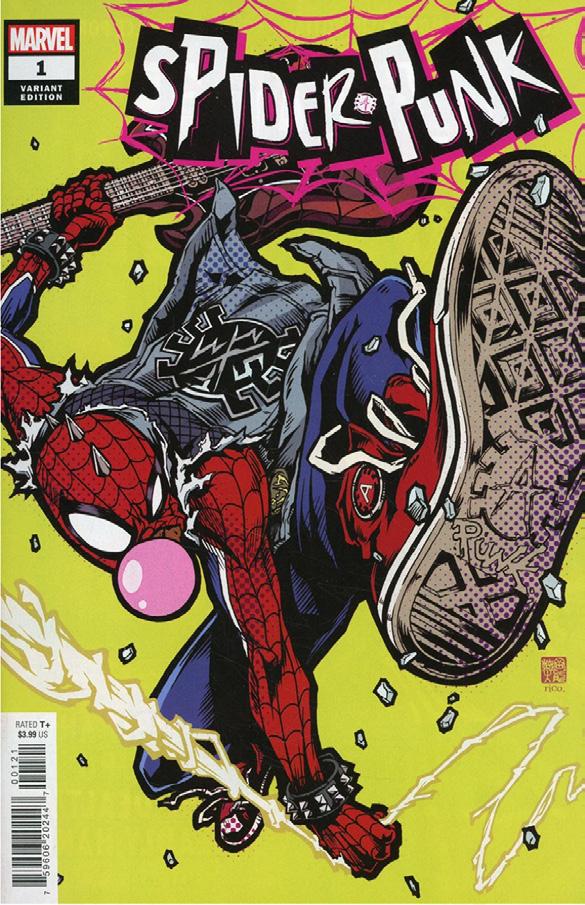
3 minute read
Axiom of Dependency
By: Amani Hassani, Grade 9 Javi
He vaguely heard the ever-present hyenas cackling, their sardonic snickers echoing throughout his wrecked form, as he sat, like a vulture, hunched over a cracked and chiselled grey rock that lay embedded in the blades of grass, and the plagued dirt. With him, they absorbed the sight that was splayed beyond the lens of his hooded deep brown eyes, his vision raking over each detail, over each crease, over each fold, over each drop.
Advertisement
As he observed the sight before him, little knowledge came to mind in the attempt to remember what had happened. To remember what it, no, he, was. To remember what she was doing here. What he had done. He did remember the repose that trailed his light steps as he ventured through insomniac streets, and as he trotted below flies that circled sharp, yellow lampposts, the moon dully shining above as the hyenas howled. He did remember seeing him earlier, as he swam through the foreboding seas of scarves and coats, of shawls and boas, and how he had moved with such an elegance that he only dreamed of in his delusional mind, that had drawn him in as a snake with its prey.
He stared at his form once more, before twisting the rough leather shaft that sat still between his sinful hands. The leather shaft was almost worn to uselessness, nearing the end of its time, but still held the loyalty he bestowed upon it. Emerging from its head was a pointed silver canvas that would shimmer and gleam under the lampposts, if it were not for the red stained tip that infected its purity. The red stained tip was accompanied by waves of freckled red stars, spanning the whole blade.
Then his pale eyes flicked back to him. As he stared even harder, he realised that the sight would have been calm, blanketed in tranquil bliss, if it were not for the constellations of copper red that splayed underneath his frozen body, if it were not for the bed of God’s rose-born poppies that sprouted from the cracked tarmac and hairs of grass beneath him, and how they seeped out of his body like overgrown vines on the side of a monastery, forming a pool of red, a flow of red rivulets that ran across the cobblestone.
If it were not for the yellow singed eyes that were dried out, unblinking, frozen in pinprick fear and that were threatening to lull back into his deformed skull, the way his elbows snapped backwards in such a distorted way it ought not to be possible. But he knew, he knew it was possible, for it was under his strength that they folded, and it was under his strength that he bled, and he knew. Those yellow eyes knew.
As he lay there, unmoving, the lights above that illuminated his fading form flickered and flashed, and the hyenas snorted in sadistic tones, urging him to join, cooing at him. But he was silent. He couldn’t look away from the mossy vine-like streams of red that grew from him. He was like a grand belfry, ringing and gold, and those streams were the bats that hung maliciously on the inside, reverberating each tick it would make. Or he was like a dowry, grand and rich, and those streams were the dour spirits that lurked in every dark corner, stringing webs of divorce where they went.

In the quest to ensure an identity, a personality, a uniqueness, he had instead taken the form of another, he had instead taken the identity of one that he had read. He had distorted himself, the way he did his arms, and moulded himself into the words he read, the way he did his skull, and the result of all of his efforts lay before him. A dead man.
He was inclined to submerge himself in a pool of guilt as an attempt to redeem himself. He was inclined to kneel before the priest as a penitent, to beg for forgiveness, to beg not to fall.
But he found himself unwilling. He found himself entranced by the guilt. He found himself caressing the sin, stroking its spindly and spotted fur as it laughed. To confront the fact that he had become what his father had said, and had followed him, and had hurt the way he hurt was too difficult. It was too difficult to kneel and confess, too difficult to say he had broken what he had pledged. Unnecessary, he thought. He found it was easier to indulge in his urges, to disregard the alleged shame, and to ignore the sinful guilt he should feel, when he was wed to the concept that threatened all of these things. He would clasp his murderous hands around the pale hands of guilt as they danced, indifferent to the cruel universe they danced upon. He was enamoured with the guilt and entrapped by its endless corollaries, like a twine noose around a naked neck, that as he stared into the previously unsettling yellow eyes once more, he did not feel disdain for himself, he did not feel the need to purge his mind of remembrance, he did not feel the need to fool himself.
Instead, he petted the hyenas once more, scratching behind their scarred, devilish ears, prying their mouths open and running his hands across their teeth. He had feasted upon his prey as a vulture did its neighbour’s corpse. With pleasure. For he learned that to love the guilt was gorgeous. And that to love it was easy.










